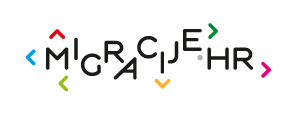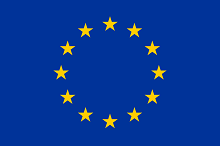- Posting is a situation in which an employer sends his workers to work from one state to another for a certain period of time. The worker continues to be covered by the social insurance system of the country from which he or she is being posted to work, and contributions for social insurance are paid in the state from which the worker has been posted to work, i.e. in his or her home country. On the basis of a certificate issued for that purpose, such worker is exempt from paying contributions to another State where he or she is temporarily engaged, during a specified period. If the approved period of posting was exceeded, or in case of occurrence of any other circumstances affecting the posting right, the competent authorities and institutions of the State in which the worker carries out the work shall be entitled to require the employer and the worker to pay contributions in that State.After the accession of the Republic of Croatia to the EU, Croatia applies the EU regulations for the coordination of social security systems to the obligations and rights from the social security system of persons posted to work from one EU Member State to another. According to the general rules of the EU Basic Coordination Regulation, employed and self-employed persons moving within the EU are subject to the legislation of only one Member State, according to their place of work (lex loci laboris), and persons moving to another state for the purpose of carrying out a particular job are an exception to this rule and are subject to the legislation of their state of origin (home country). The Croatian Pension Insurance Institute performs operations related to posting of workers within the EU.
Posting of employed persons
Certain conditions must be met – regarding the employer and the worker, in order to post an employed person to another Member State to perform job for his or her employer.Legislation of the state from which a worker has been posted to another state shall continue to apply to such worker, provided that:
- Posting period is not longer than 24 months
- The worker is not posted to replace another posted worker
- The worker was subject to the legislation of his or her home state for at least one month immediately prior to posting (for this condition it is sufficient that, for example, the posted person was covered by the unemployment benefit system as an unemployed person or was previously included in the health insurance system)
- The employer regularly carries out its business activities in the home country (in a manner that a substantial part of this activity is performed in the home country. The sole performance of administrative operations and internal management operations will not be considered as regular performance of a significant part of business activities)
- There is an immediate connection between the worker and the employer during the posting period (if such a connection does not exist or is terminated during posting, the rules on posting do not apply, i.e. posting term ceases).
Posting of self-employed persons
Provisions on posting allow self-employed persons to temporarily carry out their activities in another Member State, and legislation of their home state applies to them during that time.
Conditions are the following:
- Posting period must not last longer than 24 months
- Regular performance of activities as a self-employed person in the state from which they are posted (if they carry out a substantial part of their business activities in that state, which is assessed on the basis of the criteria stating that activities must be carried out for at least two months before posting, so that they can be continued after returning to the country of origin, and whether they still fulfil all the necessary conditions for carrying out their activities so that they can be continued after their return)
- The activity to be performed in the state of work must be of a similar nature to activity performed in the state of origin.
Guaranteed working conditions and rights of posted workers during posting
An employer who refers a worker to temporary work in the EU/EEA Member State or Switzerland must comply with certain rules during the posting, since at the time of posting the worker has the status of posted worker and specially guaranteed working conditions and rights.
Work conditions
While working as a posted worker in a EU/EEA Member State, workers are guaranteed certain working conditions in the host country.
National website for posting workers
EU Member States have made certain information available on their national web sites. Work conditions of posted workers and contact details of local authorities are available on the national web site of the host country.
SOME OF THE EMPLOYER’S OBLIGATIONS during posting of workers to the REPUBLIC OF CROATIA
During the posting to the Republic of Croatia, the employer is obliged to ensure to a posted worker the following specific working conditions which are the same for Croatian workers:
- Maximum work periods and minimum rest periods
- Minimum duration of paid annual leave
- Minimum salary, including bonuses for overtime work
- Health and safety at work
- Protective measures for the work of pregnant women, women who have recently given birth or are breast-feeding
- Protective measures for the work of minors
- Work conditions of workers referred by temporary employment agencies
- Equal treatment for men and women and other rules for the prevention of discrimination (prohibition of discrimination).
At what level should these rights be ensured?
The aforementioned rights are stipulated by legal regulations of the Republic of Croatia, as defined in collective agreements whose application in the Republic of Croatia has been extended to all employers and workers conducting a particular activity.
More information on the applicable Croatian legislation
The Labour Act and the Act on Cross-Border Enforcement of Fines in the Field of Posting Workers shall apply to the posting of workers to the Republic of Croatia in relation to working conditions.
What if these guaranteed working conditions (including salaries) are more favourable in the country of establishment of the employer who posts the worker to the Republic of Croatia for a limited period of time?
In this case, a posted worker should be given a more favourable right.
The procedure for posting of workers
1. The obligation to submit a posting declaration prior to posting or notification of any subsequent change of data in that declaration.
Before posting of workers to the Republic of Croatia, all employers / service providers are required to submit a declaration, no later than the commencement of work or provision of services in the Republic of Croatia, in electronic form and by electronic means, to the central state body responsible for labour inspection and safety at work, at the e-mail address:
postingdeclaration.inspektorat@mrms.hr
Posting Declaration Form 1 HR and Posting Declaration Form 1 EN
Notification of change of submitted posting declaration Form 2 2 HR
Notification of change of submitted posting declaration Form 2 EN
2. Obligation to designate a person who will be authorized to cooperate with the competent authorities in the Republic of Croatia during the period of posting and who will, upon request of the competent authority, provide relevant documentation on the worker, other evidence necessary for the control and supervision, and provide the competent authorities with all the necessary information.
3. Obligation to appoint a contact person in the Republic of Croatia who will be authorized, during posting period, on behalf of and for the account of the employer to co-operate with the competent authorities and, if necessary, to receive and send documents, requests, notices and other written submissions and deliver them to the employer.
4. The labour inspector is authorized to request certain statements and documents proving whether the employee is employed by the employer in accordance with the law during the posting, in which working hours and schedule, how many working hours he or she has worked, what his or her income is, whether he or she has an A1 form completed, and similar. Therefore, the posted worker should have, during the posting, an identification document, an employment contract, preferably a copy of A1 form, an individual bill of pay or pay-sheet, a copy of the declaration of posting and:
– third-country nationals employed in an EEA Member State additionally need a residence permit in the country of residence of the employer who sent them to work in the Republic of Croatia, and for work longer than 90 days a temporary residence permit for the purpose of the work of the posted worker in the Republic of Croatia in accordance with the provisions of Foreigners Act
– third-country nationals employed outside the EEA, who are sent to the Republic of Croatia as service providers on the basis of a multilateral or bilateral international agreement binding on the Republic of Croatia, need a residence and work permit without labour market test and opinion of the Croatian Employment Service in accordance with the provisions of the Foreigners Act
– third-country nationals employed outside the EEA who are service providers in the Republic of Croatia need a residence and work permit or work registration certificate in the Republic of Croatia in accordance with the provisions of the Foreigners Act.The contact point for general information on labour legislation is the Ministry of Labour, Pension System, Family and Social Policy (Contact: info@mrosp.hr ; croliaisonoffice@mrosp.hr )
Point of Single Contacts – information on establishing a company and providing services in Croatia.
If the said conditions are fulfilled, the Croatian Pension Insurance Institute issues an A1 certificate for each posted worker, confirming that the Croatian social insurance legislation continues to apply to such worker. A1 certificate is a default form valid throughout the EU as proof that a worker was posted to work abroad and does not have to pay contributions in the state of work for a certain period because these contributions are paid in the country from which he or she is posted to work.
A1 certificate cannot be issued for a period longer than 24 months if an employment contract for an indefinite period of time is concluded. In case of a fixed-term contract, the certificate is issued only for the duration of the contract. Exceptionally, it is possible to apply for an extension of the posting period (longer than 24 months and up to 5 years) for one person. If there is a justified reason e.g. if the contracted job cannot be completed within 24 months, it is possible to extend the posting period by a special proceeding, with the consent of the competent institution of the country in which the worker is posted to work. An application for posting extension is submitted in advance, before the expiry of the existing posting period (it is submitted in a separate Application form pursuant to Article 16 of Regulation 883).
Posting rules also apply to persons who are employed with the intention of posting from the first day of employment. However, the person concerned must, immediately before posting, be covered by the legislation of the Member State in which the employer regularly carries out his activity.
Relevant links:
- Foreigners Act (OG, No. 133/20, 114/22 i 151/22)
- Act on EEA Nationals and Members of Their Families (Official Gazette, no. 66/19, 53/20 ,144/20 and 114/22)
- Act on cross-border enforcement of fines in the field of posting workers
- Labour Act (Official Gazette, no. 93/14, 127/17, 98/19, 151/22, 46/23, 64/23)
- Regulation 883/2004
- Websites of the Croatian Pension Insurance Institute
- Guidance on posting workers to the EU
- Exceptions from the rules for determination of applicable legislation
- Special rules for the determination of legislation which applies to mariners
- Applications for posted persons






